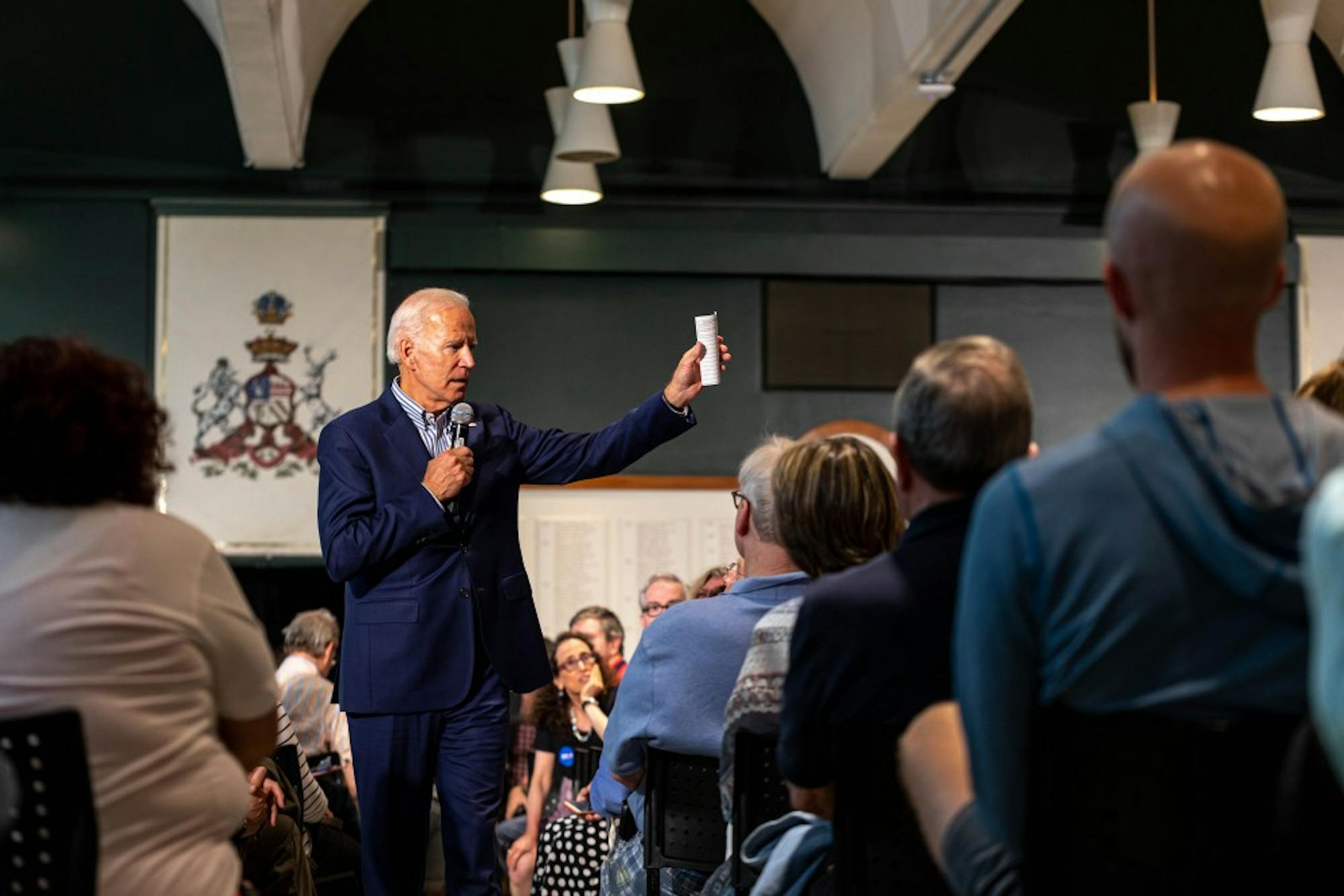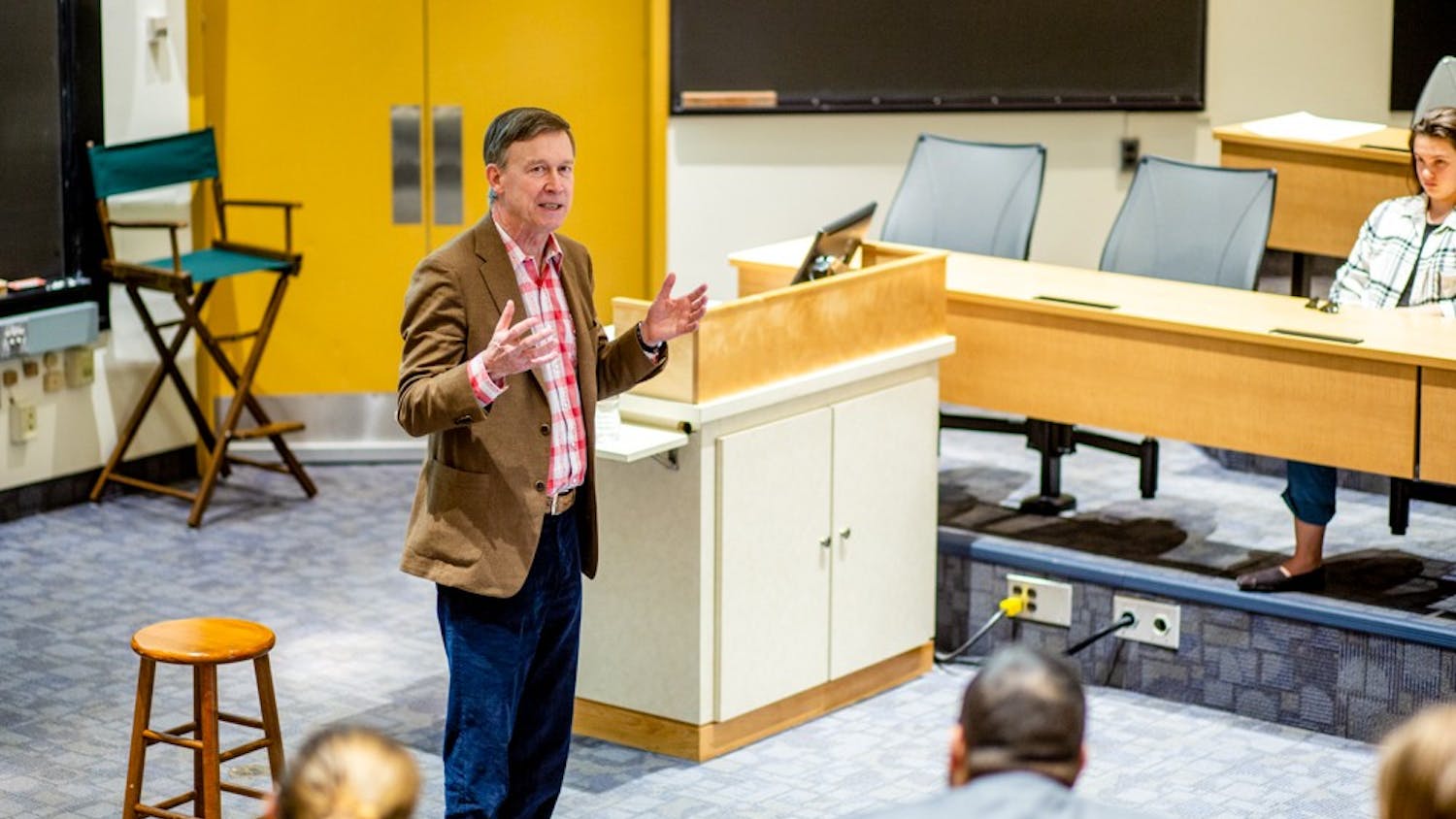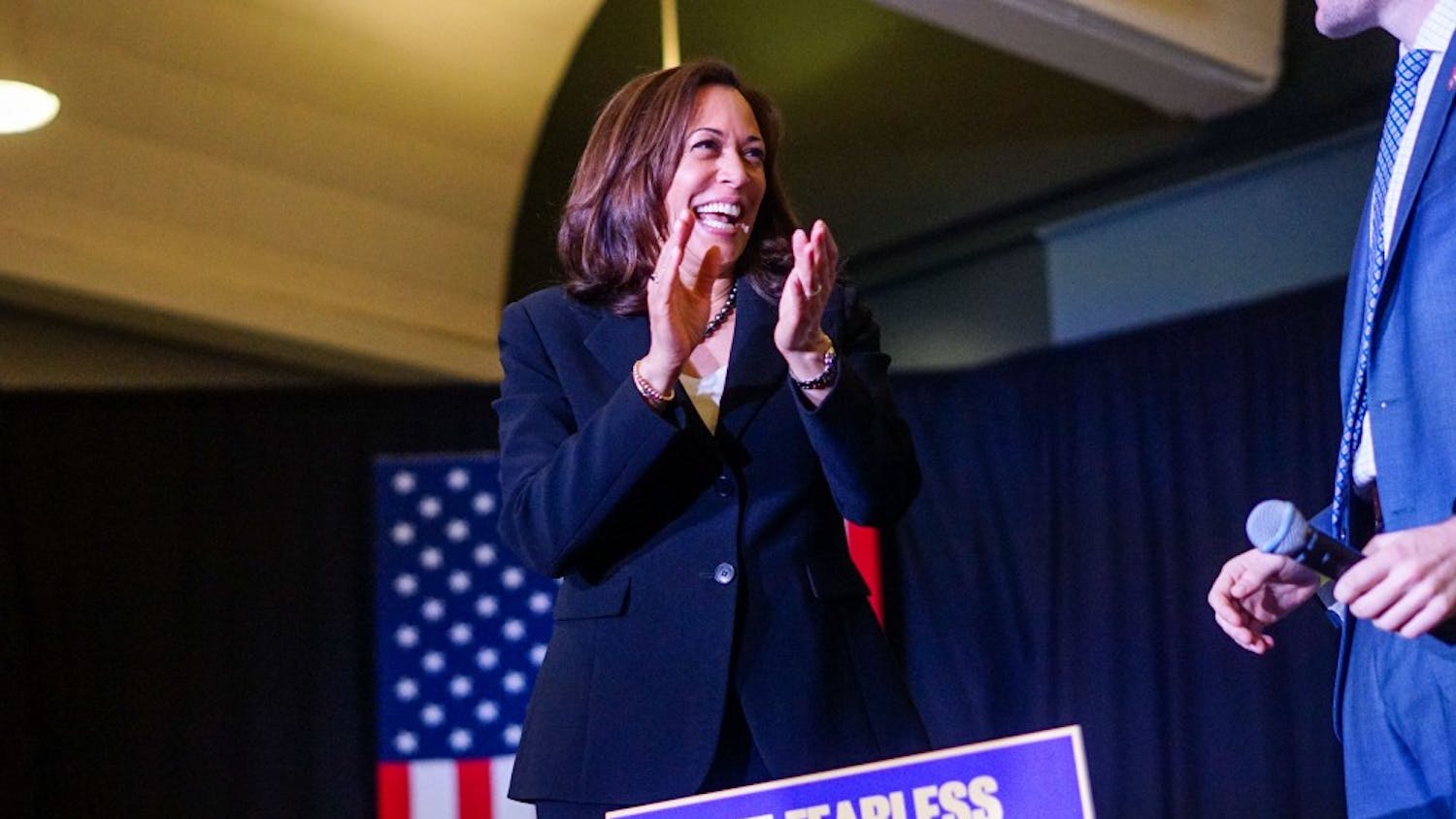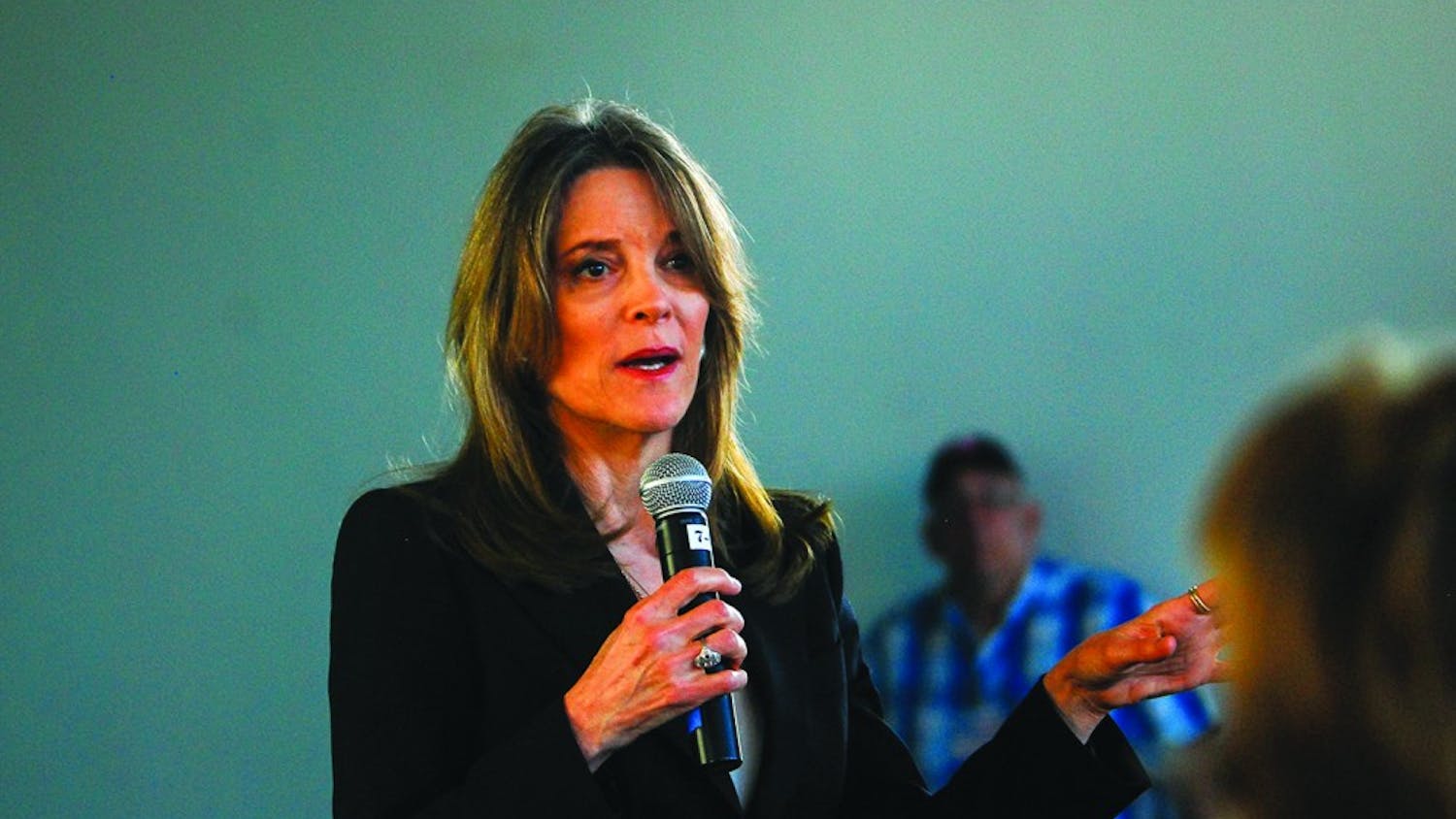Former vice president and 2020 Democratic presidential frontrunner Joe Biden campaigned at Dartmouth on Friday, promoting his health care plan and distinguishing his positions on the issue from those of President Donald Trump and some of his opponents in the Democratic primary.
Biden spoke to a crowd of about 400 students and community members and then engaged in a question and answer session with the audience in a town hall-style event.
In his speech, Biden defended the Affordable Care Act and criticized efforts by the Trump administration to repeal the law. But he also referenced other Democratic presidential candidates who have advocated for undoing the law, also known as Obamacare, in favor of more ambitious plans such as "Medicare for All" — which Biden described as being too expensive and impractical.
Biden said health care is a personal issue for him, recalling losing his wife and daughter in a car accident which injured his two sons in 1972 and his son Beau dying of brain cancer in 2015. He spent the majority of his prepared remarks promoting his policies, the centerpiece of which involves allowing individuals to purchase a government-offered health care plan.
“Building on Obamacare with a public option is the way to go,” Biden said.
Biden said in a later part of his talk that he would want to see the Department of Health and Human Services enlist non-governmental experts to price drugs in such a way that companies can make a “respectable profit” but also can’t “rip off” the American people. He added that the prices should be based on efficacy and the cost to produce the drug, but not exceed the price of health care inflation.
Biden also got in a few digs at Trump during his speech, saying the president is “diminishing our standing in the world” and that he is “concerned about the state of the nation.”
In a subsequent question and answer session, which lasted roughly an hour, Biden fielded questions on a range of issues from mental health and drug prices to climate change, taking several minutes for his answers to most of the questions.
One woman, describing climate change as a health issue, told Biden that she believed his plan to address climate change did not go far enough. Some members of the audience joined in with snaps as she asked him whether he would change his environmental policy to include “radical decarbonization.” Biden responded by saying that no candidate has proposed policies that can end carbon emissions within the next 10 years, and instead pointed to his plans to invest in offshore wind capacities and carbon sequestration. He also emphasized his history on the issue, including working on the 2015 Paris Climate Agreement.
After fielding a question about mental health, Biden spent several minutes talking about the issue, often getting emotional in describing servicemembers dealing with post-traumatic stress disorder and children in school worrying about school shootings.
Toward the end of the event, Biden drew parallels between today’s political climate and that of the 1960s. He recalled two of his political heroes — Martin Luther King, Jr. and Robert Kennedy — both being assassinated during his senior year of college, and asked rhetorically what would have happened in the United States if former President Barack Obama had been assassinated while he was the Democratic nominee in 2008.
Steven Atkins, an Upper Valley resident who asked Biden the question about mental health, told The Dartmouth after the event that he was disappointed Biden didn’t specifically answer his question, but said he was “pleasantly surprised” with his performance overall.
“I was impressed with his zeal,” Atkins said. “It’s nice to hear some positive energy, lifting us back up again instead of tearing us apart and putting us down.”
Emily Stehr ’21, who spoke with Biden with other students after the event, said that although she supports Sen. Elizabeth Warren (D-MA), she was impressed by Biden’s education plan, particularly its provisions on preschool and increasing teacher pay.
“I don’t think he’s jumped to the top of my list,” Stehr said. “But definitely very cool, and I hope that a lot of his policies are incorporated into [the platform of] whoever runs.”
Biden’s trip to the Granite State comes as the former vice president continues to hold a lead in the Democratic nomination contest in national polling, though recent polls in New Hampshire show a potentially tight race for the first-in-the-nation primary between Biden, Sen. Bernie Sanders (I-VT) and Warren — both from neighboring states.
One of several candidates who have come to campus in recent months, Biden’s visit will be followed by an event held by South Bend, IN mayor Pete Buttigieg tomorrow evening at the Hanover Inn. Biden’s first visit as a presidential candidate comes at a relatively quiet time on campus, just weeks before the beginning of fall term.




